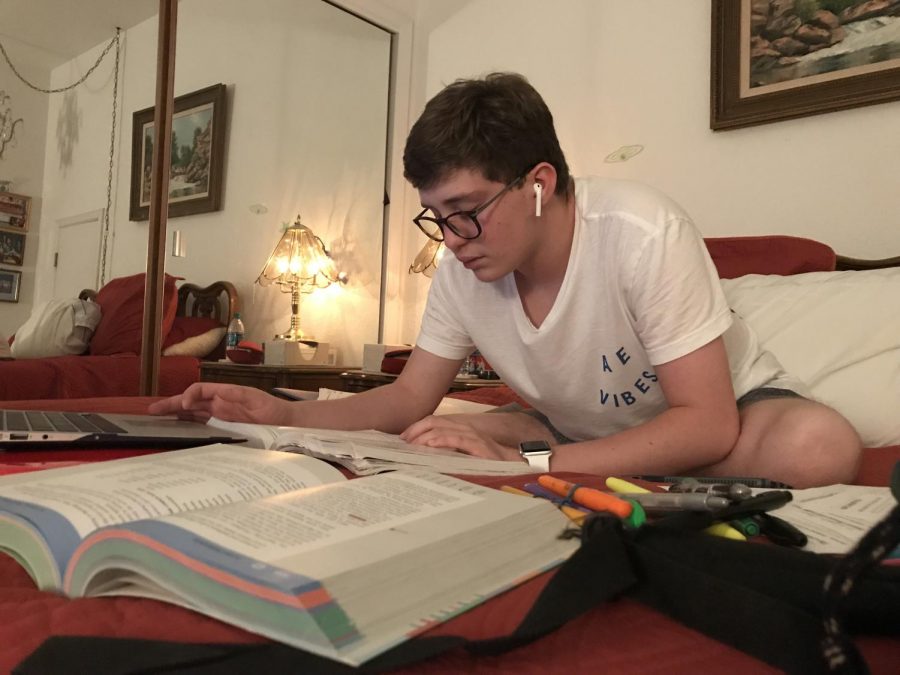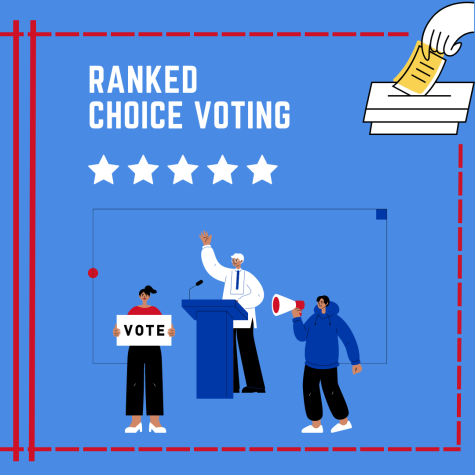Is technology helpful or hurtful?
Students primarily use laptops as it provides all of the necessary information right at their fingertips.
“It’s because of that dang cell phone!” is a phrase most teenagers know and hate. We hear it often from our parents and sometimes even our teachers. My parents complain constantly that I am too reliant on my tech and that I spend too many hours on my phone. Don’t even get them started on how much time I spend on my computer. But what I don’t think my parents realize is how much of that time is spent on homework.
More than half of my assigned work is required to be completed online or must be accessed through the internet. While this is convenient because it means fewer papers and textbooks to be carried in book bags, it also begs the question, how “technology-obsessed” are students actually?
Now, don’t get me wrong: the benefits of technology in the classroom are plentiful – online research and turning in homework with a click of a button are some – it can also be the root for many distractions.
The way this generation learns also is drastically different than that of previous generations. Teenagers often hear comments like, “back in the day, they didn’t have this kind of technology” and “kids now are too dependent, let’s see them go to the library and actually read a book.” Our parents are so quick to judge our methods of learning that they don’ t remember that once upon a time, they were in our shoes. The technology of today is wildly more advanced than the technology of my parents’ time. But in reality, their technology was more advanced than that of my grandparents, and they, too, were ridiculed for the use of that technology.
I’ll be the first to admit that I have stopped mid-lecture and texted friends, maybe scrolled through Twitter, and occasionally played a game…or two. I have also told myself, “I can just take a quick break in-between homework assignments,” but I’d like to think all of us have been there at some point or another.
A Pew Internet Project study done of Advanced Placement and National Writing Center teachers found that 87% say these technologies are creating an “easily distracted generation with short attention spans” and 64% say today’s digital technologies “do more to distract students than to help them academically.” The study polled 2,462 teachers of varying grades.
The majority of the time, these distractions are from receiving notifications, but this is not the only way to lose focus. Even how your peers use their laptops can be hard to ignore when you are trying to concentrate. The benefits students can reap from being able to use this technology only occurs when they are using the tech productively and purposefully.
Ultimately, distractions are inevitable in a classroom environment, but technology shouldn’t distract from a student’s ability to learn. The truth is that no learning aids are without its faults. If you want to learn, you will, and only you are in charge of how wisely you use your technology for school purposes.
The easiest way to limit or reduce distractions is simply turning on “Do Not Disturb” or simply turning off notifications during the school day or until you finish homework at the end of the day. The reminder to turn off notifications may be beginning to sound like a broken record for a lot of students. It’s simple advice that we have all heard before from teachers and peers, but it works. Turning off these notifications may be hard to get used to at first, but you’ll soon be able to focus solely on schoolwork because it indirectly reminds us to stay on task.
Remember that blocked apps on the school’s Wi-Fi are for our own benefit. Netflix, Snapchat, and Instagram, for example, have something in common: they distract people. Students should learn to use the time they have in school for school.
Am I too obsessed that I couldn’t live without technology? Maybe, maybe not. I do admit that I probably use technology way more than I should, but that is just the norm for this new generation. Nonetheless, I’m doing my part to make sure it does not interfere with my learning.

Layla Boyer is a senior and has been in newspaper for four years. Her favorite part of newspaper is being able to interact and get to know so many different...












